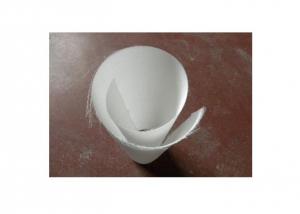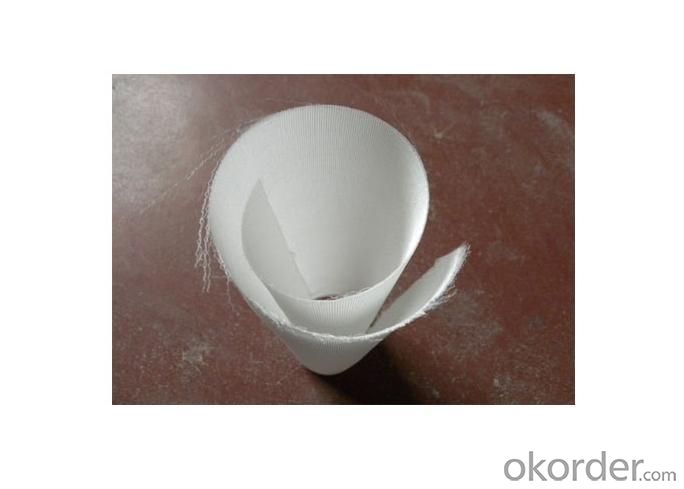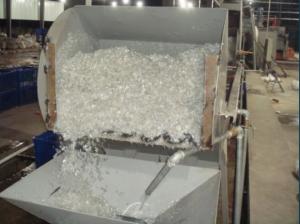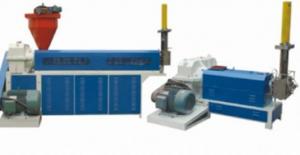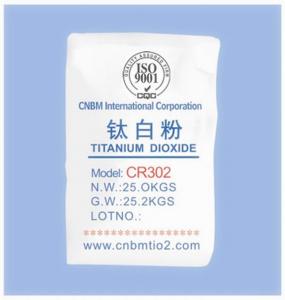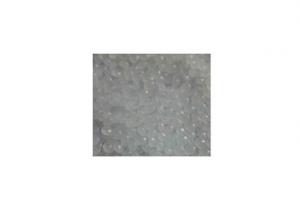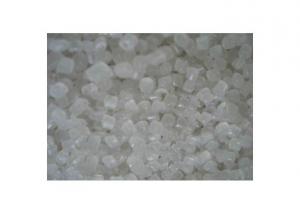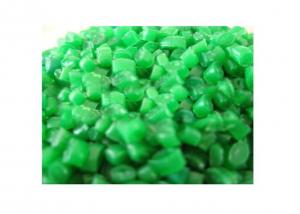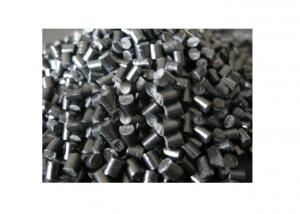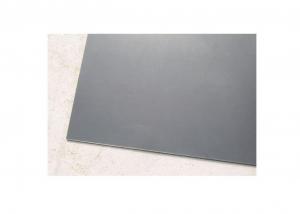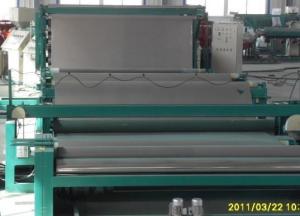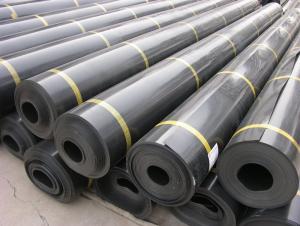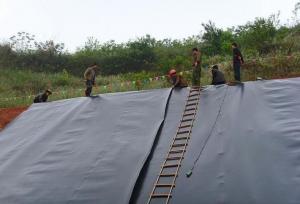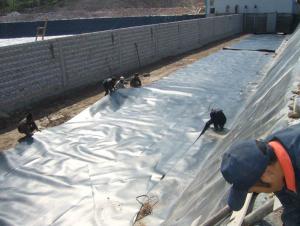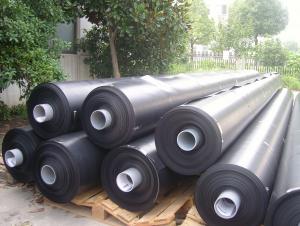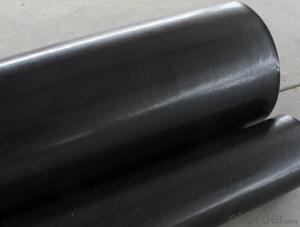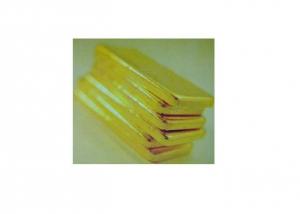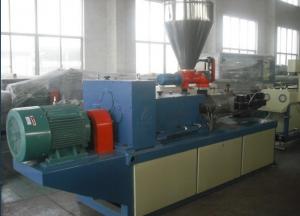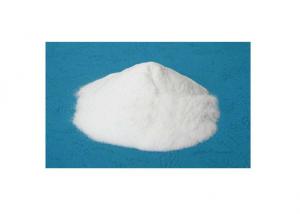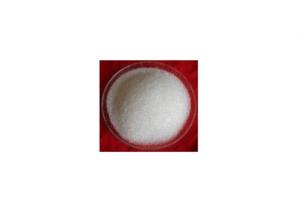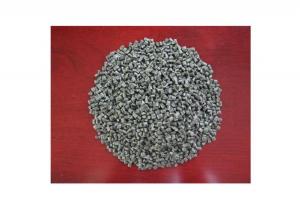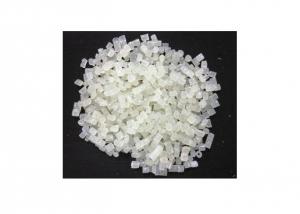White Geosynthetics Geomembrane
- Loading Port:
- China Main Port
- Payment Terms:
- TT or LC
- Min Order Qty:
- 20 Ton m.t.
- Supply Capability:
- 200 Tons per Month m.t./month
OKorder Service Pledge
OKorder Financial Service
You Might Also Like
Detailed Product Description
1. Geosynthetics Textured Geomembrane
2. Breaking strength (KN/m):10
Membrane material thickness F (mm): 0.25-0.35
The introduction and application of textured geomembrane:
1. Material: high density polyethylene (HDPE), low density polyethylene (LDPE),EVA
2. The textured geomembrane mainly used in engineering construction fields.
3. Application: anti-seepage, isolation, anti-cracking, enhance, reinforcement, level drainage, remediation.
4. The textured geomembrane especially suitable for high water level, water pressure and lateral pressure big, anti-seepage demanding project.
The spec and property indexes of textured geomembrane:
|
Items and Art.NO |
1 |
2 |
3 |
|
Mass per unit (g/m2) |
400 |
500 |
600 |
|
Breaking strength (KN/m) |
5 |
7.5 |
10 |
|
Vertical and horizontal CBR bursting strength (KN) |
1.1 |
1.5 |
1.9 |
|
Tearing strength T (KN) |
0.15 |
0.25 |
0.32 |
|
Membrane material thickness F (mm) |
0.25-0.35 | ||
- Q: Pollution in the production of plastic raw materials from petroleum production
- Oil separates compounds of different components by distillation. Through this process, liquefied gases (alkanes, olefins, etc.), diesel, gasoline, bitumen, etc. (from gas to solids) can be separated. In addition, plastic monomers can be prepared from naphtha or natural gas in synthetic plastics
- Q: What is the difference between PPA plastic raw material and PP?
- PPA is a high temperature nylon, generally used in the automotive industry and the electrical and electronic industry, it has the characteristics of high temperature resistant nylon, but also much higher than nylon, that is to say in the high temperature working environment inside it will be more excellent performance than ordinary nylon, longer service life. At present, the high temperature nylon base material on the market is basically nylon 46, nylon, 6T, 9T and so on.
- Q: Main ingredients and formulations of PPR tubes
- PPR pipe has energy saving, environmental protection, high strength, corrosion resistance, with smooth inner wall has the advantages of scale, construction and easy maintenance, long service life, widely used in building water supply and drainage, urban drainage, city gas, electric power and cable sheath, industrial fluid transportation, agricultural irrigation, industrial and municipal construction industry and the field of agriculture. The PP-R pipe is made of random copolymerized polypropylene and is extruded into tubes to be molded into tubes.
- Q: How is plastic material made out?
- At present, resins are polymers that have not yet been blended with additives. Resin accounts for about 40% to 100% of the total weight of plastics. The basic properties of plastics depend mainly on the nature of the resin, but additives also play an important role.
- Q: Can PE material be used as food grade plastic?
- Plastic film PE the main consumption areas, because of its more and more used in consumption and transportation, the development of the relationship between demand and the overall economic situation is bigger, basically maintain a slightly higher than the national GDP growth, the growth momentum of stable existence of rigid demand. From the flexible packaging film production statistics, since 2006, the average increase rate of 13%, but also confirms the steady growth of plastic film. Another important consumption area of polyethylene is plastic pipe, and its output increases with the pace of urbanization in China, and the increase of municipal pipeline construction projects is increasing. In the next few years, the municipal water supply and drainage, gas pipelines, and urban underground power, communication, sheathing and pipelines will continue to be the focus of development in recent years.
- Q: What type of raw material is used in plastic bags? The brightness is good. It blows out as bright as a mirror! That kind of transparency!
- PE, the solute has high pressure and good transparency. I've seen a high transparent vegetable packing bag. That's a secret formula
- Q: What is Ms plastic material?
- Transparent polymers were synthesized from methyl methacrylate (MMA) and styrene (SM) as the main raw materials.
- Q: What two ingredients fit together to solidify like plastic?
- Secondly, whether or not the material can be calibrated in accordance with the displacement sensor (or embedded in it), and then the gap distance is measured by reading after installation.
- Q: What are the criteria for the classification of plastic materials at injection molding and extrusion?
- The new plastic materials, manufacturers have set by type of good applicability, according to the model can be used, but not to say that the plastic extrusion grade no injection molding, injection molding grade plastic extrusion processing can not, some engineers to use the material properties, will use the technological method for solving extrusion or injection molding grade between the influence.
- Q: What are the bulk density, size and moisture content of the general plastic material?
- Among them, the mass of the material has nothing to do with the particle size, but the larger particles have larger volume due to the presence of more voids between the particles. Small particles (powder) to the general packing is very tight, so the smaller bulk density.
1. Manufacturer Overview
| Location | Shandong,China (Mainland) |
| Year Established | 2008 |
| Annual Output Value | Above US$100 Million |
| Main Markets | 40.00% Africa 20.00% South America 10.00% Southeast Asia 10.00% Mid East 10.00% North America 10.00% Eastern Asia |
| Company Certifications |
2. Manufacturer Certificates
| a) Certification Name | |
| Range | |
| Reference | |
| Validity Period |
3. Manufacturer Capability
| a) Trade Capacity | |
| Nearest Port | percent of export |
| Export Percentage | |
| No.of Employees in Trade Department | |
| Language Spoken: | |
| b) Factory Information | |
| Factory Size: | 5,000-10,000 square meters |
| No. of Production Lines | 10 |
| Contract Manufacturing | OEM Service Offered Design Service Offered Buyer Label Offered |
| Product Price Range | average |
Send your message to us
White Geosynthetics Geomembrane
- Loading Port:
- China Main Port
- Payment Terms:
- TT or LC
- Min Order Qty:
- 20 Ton m.t.
- Supply Capability:
- 200 Tons per Month m.t./month
OKorder Service Pledge
OKorder Financial Service
Similar products
Hot products
Hot Searches
Related keywords
